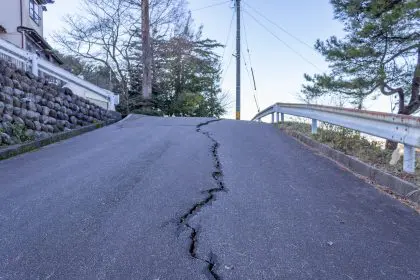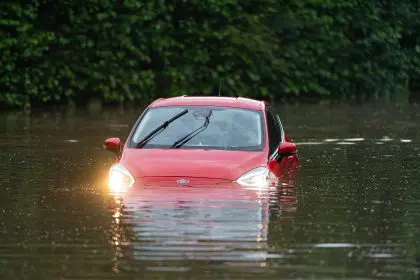As winter grips the Great Lakes and Northeast, approximately 5 million residents are under severe winter weather alerts. A major snowstorm has left significant disruptions in its wake, affecting travel and daily life. Conditions are expected to remain hazardous throughout the week, prompting warnings from local authorities and weather agencies.
Record snowfall slams New York and Pennsylvania
New York has borne the brunt of this storm, with some areas buried under nearly 5 feet of snow. Communities in the state have reported up to 58 inches of accumulation, particularly in regions prone to lake-effect snow. Erie, Pennsylvania, is also grappling with heavy snow, with at least 30 inches recorded. According to the National Weather Service, snow will continue to fall in areas downwind of Lake Erie and Lake Ontario until midweek.
Cleveland and Erie are under lake-effect snow warnings, with meteorologists predicting relentless snowfall. For residents accustomed to winter weather, the sheer volume of this storm has tested even the most prepared communities. Snowplows are working around the clock to clear roads, but the rapid accumulation continues to create challenges.
Travel chaos and winter weather advisories
Hazardous travel conditions persist across Michigan’s Upper and Lower Peninsulas and parts of upstate New York, including Syracuse. Winter storm warnings remain in effect, with snowfall rates expected to reach 1 to 2 inches per hour. This relentless snowfall will reduce visibility and create slick, icy roadways, increasing the risk of accidents.
Temperatures are plunging 10 to 15 degrees below normal in parts of the Plains, Ohio Valley, and mid-Atlantic regions. This Arctic blast has compounded the already difficult conditions, making even short commutes dangerous.
In response to the storm, New York Governor Kathy Hochul lifted a ban on buses, commercial trucks, and tractor-trailers early Monday morning. However, officials continue to urge caution, especially for drivers traveling through areas hit hardest by the storm.
A harrowing rescue: heart transplant patient saved amid storm
Amid the chaos, a story of heroism unfolded. New York State Troopers rescued a 64-year-old woman who became stranded on a snowy highway while traveling to Cleveland for a life-saving heart transplant. The woman and her husband were driving from Rochester when they encountered impassable roads.
A nurse in Cleveland contacted state police, who quickly dispatched officers to assist. Troopers transported the woman to a nearby hospital, where she was later airlifted to Cleveland for her procedure. This remarkable rescue underscores the dangers posed by severe winter weather and the critical importance of emergency response teams.
Throughout the weekend, New York State Police reported assisting 111 disabled vehicles and responding to nearly 90 collisions, including seven involving injuries.
Cold snap reaches the Southeast
Winter’s icy grip has extended beyond the Northeast. A freeze warning is in effect for approximately 3 million residents in northern Florida and southern Georgia. Tallahassee experienced temperatures around 33 degrees Fahrenheit—well below average for the region.
The unseasonably cold weather has prompted officials to warn residents about the risks of frost and frozen pipes. Farmers in the region are also taking precautions to protect crops from frost damage.
Thanksgiving travel surge amid winter storm
Despite the harsh weather, the Thanksgiving holiday weekend saw record-breaking travel numbers. The Transportation Security Administration (TSA) reported screening 2.8 million passengers on Saturday, marking a significant increase from previous years. This surge, combined with winter weather, created challenges for airports and travelers alike.
Dallas-Fort Worth International Airport experienced severe traffic congestion, with some travelers walking from toll booths to terminals. Although conditions have improved, airport officials continue to advise passengers to allow extra time for their journeys, particularly as the winter storm complicates travel plans.
Tips for staying safe during severe winter weather
With winter weather expected to persist, residents in affected areas should take precautions to stay safe:
- Monitor weather updates: Stay informed by checking forecasts from trusted sources like the National Weather Service.
- Avoid unnecessary travel: If possible, delay travel until conditions improve. If you must drive, keep an emergency kit in your vehicle.
- Prepare your home: Ensure you have enough food, water, and emergency supplies in case of power outages.
- Dress appropriately: Layer clothing to stay warm and protect against frostbite. Wear insulated boots and gloves if venturing outdoors.
- Check on neighbors: Elderly and vulnerable residents may need assistance during extreme weather.
Conclusion: Resilience amid winter’s fury
As residents across the Great Lakes and Northeast contend with record-breaking snowfall and freezing temperatures, the importance of preparation and community support has never been clearer. Stories like the rescue of the heart transplant patient highlight the resilience and dedication of first responders.
With more snow in the forecast, staying vigilant and heeding safety warnings will be crucial. For those affected, the coming days will be a test of endurance, but also a reminder of the strength found in communities pulling together during times of crisis.








